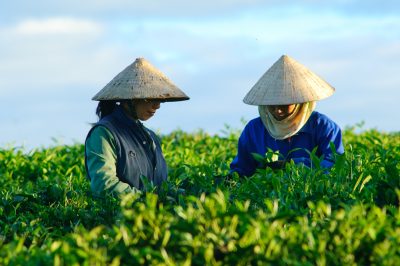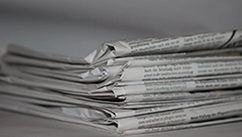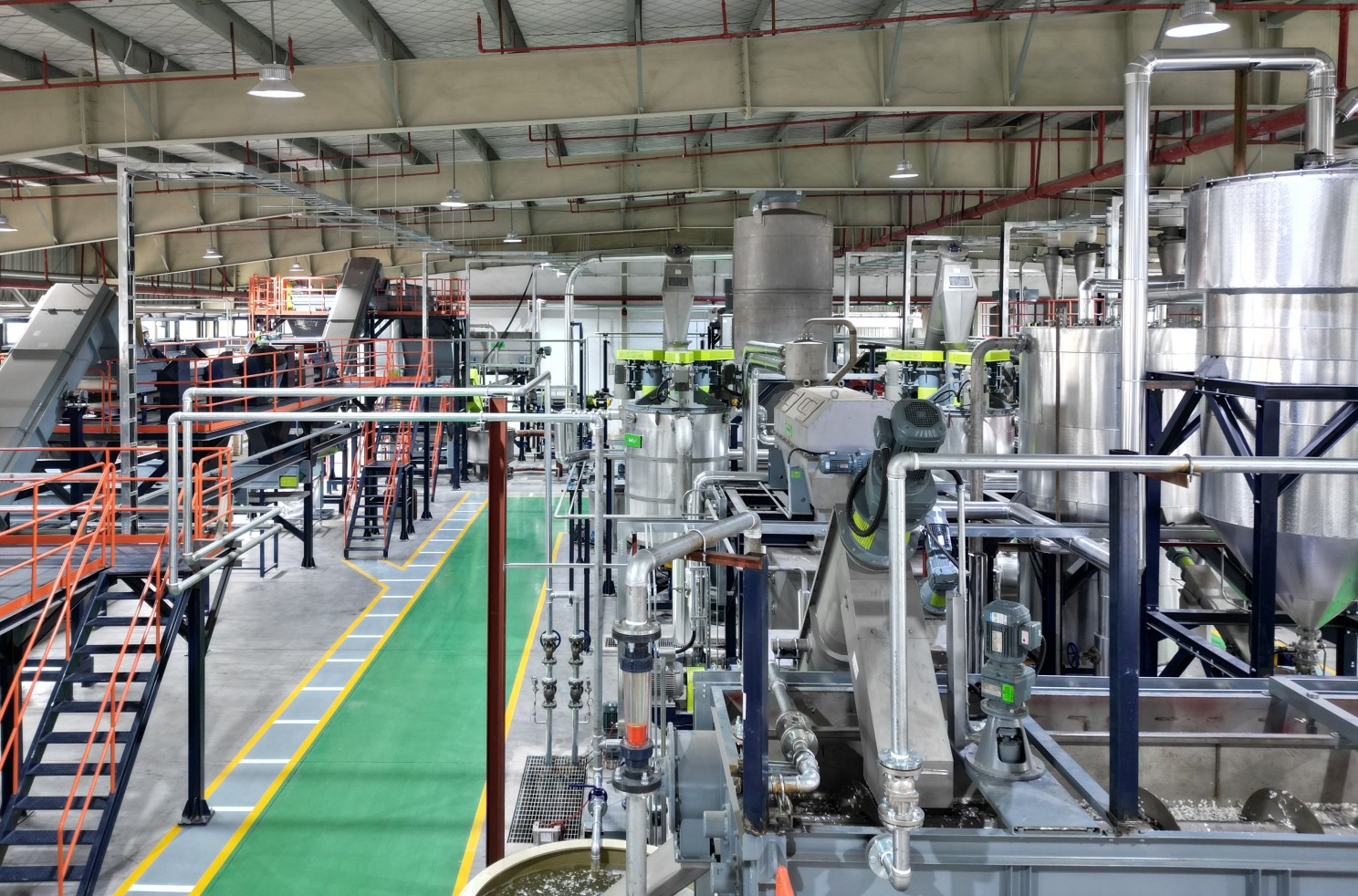Vinamilk brings circular economy to million-dollar farms
Stepping into the Vinamilk farm in Tay Ninh, the vast green space and fresh, refreshing atmosphere easily make visitors forget that they are standing on a “livestock farm” with a herd of up to 8,000 cows. With no unpleasant odors from cow waste, no wastewater discharged directly into the environment, this nearly 700-hectare dairy “resort” emerges as a green oasis with open space in the middle of Ben Cau land.

Here, livestock waste is collected using a modern system and processed with Biogas technology. The “outputs” of this process are fertilizer, water, and gas, which will become the “inputs” of a new cycle, serving the farm’s operations again. This cycle is a characteristic of the circular economy model, applied synchronously by Vinamilk in its farm system nationwide.
Circular economy has been successful in many developed countries such as Sweden, Denmark, Finland, Canada, Japan, Singapore… In Europe, this model is considered by many experts to be the solution to post Covid-19. In Vietnam, this concept has been mentioned more and more in recent years and has been gradually applied by large businesses with systematic strategies for sustainable development.
“Economic activities up to now have been mainly based on traditional approaches, leading to a shortage of natural resources and especially causing environmental pollution. For rapid and sustainable development, The appropriate direction is to transition to a circular economy,” said Mr. Nguyen The Chinh – Director of the Institute of Strategy and Policy on Natural Resources and Environmental.
As one of the leading enterprises in the dairy industry, playing a major role in changing the face of the high-tech dairy farming industry, Vinamilk constantly expands its scope of sustainable development, aiming for a balance between Production and business growth with environmental and social responsibility.
With 12 farms spread across the country, new projects are continuously being invested, and the size of the cow herd is also growing rapidly, how has the problem posed to Vinamilk regarding sustainable development been solved? Especially in the context that Vietnam’s agricultural sector is increasingly affected by climate change, water pollution…
One of the important principles in the circular economy chain is to aim for “nothing thrown away”. At Vinamilk’s farms, livestock waste through modern collection and treatment technology and the Biogas system is separated into solid fertilizer, or processed into liquid fertilizer to fertilize pastures and grow crops. soil improvement. Another “product” of this process is Methane gas, which can heat water up to 90 degrees, used to clean farm equipment and pasteurize calf milk. On a longer path, by aiming to reduce fossil fuels, this renewable fuel source contributes to significantly reducing CO2 emissions, thereby minimizing the greenhouse effect.
The organic livestock model is one of the important keys in Vinamilk’s sustainable development strategy. In 2016, Vinamilk Organic Dalat Farm (Lam Dong province) of Vinamilk became “The first organic dairy farm meeting European standards in Vietnam” certified by the global organization Control Union (Netherlands). This is an important milestone in Vinamilk’s journey, not only aiming to elevate the Vietnamese dairy farming industry in terms of productivity but also towards sustainable, environmentally friendly development.

Choosing to operate according to organic standards, Vinamilk invested and deployed synchronously from land resources, grass seeds, grass growing, cow feed to animal husbandry, veterinary medicine, waste treatment, and environmental protection… Animal feed comes from non-genetically modified grasslands, completely free of pesticides and chemical fertilizers, and cows do not use growth hormones. The strict conditions of this standard system not only create clean, nutritious and safe organic dairy products but also make an important contribution to reducing water pollution, cleaning the air, and protecting the environment.


Aware of this, along with creating economic value, Vinamilk aims to responsibly exploit land resources and optimize the land regeneration cycle in the value chain. Land resources are managed and exploited to retain maximum value and natural organic nutrients through activities such as organic livestock farming, good agricultural production practices, and application of science and technology focusing on soil cultivation, crop rotation, and optimizing the use of organic fertilizer from cows.
Initial results: As of 2019, Vinamilk’s organic grassland area for dairy farming has increased 10 times compared to 2016 when the business opened its first Organic farm in Vietnam. In recent years, Vinamilk has begun applying advanced agricultural techniques such as Japanese technology on many cow farms to help increase soil fertility and nutrients to replace chemicals and inorganic fertilizers.


The United Nations predicts that by 2030, the demand for natural resources will increase three times compared to today. This is beyond the supply capacity of natural resources.
A sustainable development-oriented business will reduce its dependence on traditional electricity by looking to renewable energy to solve the problem of energy security, while minimizing the impact of environmental pollution. Prioritizing the use of environmentally friendly technology and green energy is identified by Vinamilk as the focus for its sustainable development strategy.
Da Lat Organic Farm is one of the first farms that Vinamilk has deployed to test install a solar energy system. This is the first step in expanding this energy project to a system of farms nationwide.

Previously, in 2019, Vinamilk equipped and invested in new mechanical equipment and large-capacity electrical equipment, prioritizing new generation technology and engines, saving energy and meeting strict emission standards, the engine has a fuel saving mode; The electric motor uses soft starters and inverters… As a result, the system helps significantly reduce electricity costs and contributes to reducing the amount of CO2 emitted into the environment.
Mr. Trinh Quoc Dung – Executive Director of Raw Material Area Development of Vinamilk affirmed: “Vinamilk’s orientation is to build dairy farms to become “nuclei” for the development of the local dairy industry in particular and the country in general. In addition, Vinamilk will continue to implement tam nong, create livelihoods for people in the vicinity of the farm and develop agriculture and livestock in a sustainable way to form a price link chain”.


In 2017, the Prime Minister approved the Project to develop Vietnam’s environmental industry until 2025, aiming to form an environmental industry that can meet the contents of the circular economy. This journey requires the coordination of the State, businesses, and consumers, in which Vietnamese businesses are an important link to create change.
To truly turn the circular economy model into a driving force for sustainable development, Vietnamese businesses do not just stop at “circular thinking”, but need serious and comprehensive investment in resources, technology and people follow a long-term strategy. This is also a commitment, exchanging short-term, immediate benefits in exchange for sustainable values over time, meaningful for the development of businesses, the environment and society.
Affirming that circular economy is a guideline in Vinamilk’s sustainable development strategy. Ms. Mai Kieu Lien – General Director of Vinamilk said that Vinamilk will further promote sustainable development programs and initiatives; establish a specialized department in charge of circular economy; strive to complete the set sustainable development goals, aiming for the 30 largest dairy companies in the world and becoming the dairy company creating the most value in Southeast Asia by 2021.
“Vinamilk will continue to conquer greater challenges in the current general context in the world and Vietnam, to jointly achieve sustainable development goals,” Ms. Mai Kieu Lien affirmed.
The agricultural sector is facing the challenge of reduced productivity due to rapid development as well as the habit of using fertilizers, pesticides, antibiotics, water scarcity and pollution… Therefore, the role of pioneering businesses not only focuses on solutions to develop the dairy farming industry in terms of productivity but also focuses on sustainable development.
With this orientation, Vinamilk’s approach is that investment and exploitation both assess risk impacts on nature and the environment. Each activity in the value chain is aimed at opportunities to apply circular economy on the principles of green investment, responsible exploitation, effective use, reduction, recycling…
With pioneering and creativity in implementing sustainable development strategies, Vinamilk recently led the top 10 sustainable enterprises in Vietnam in production in 2020. This is also the 5th consecutive year that Vinamilk has been evaluated by the Program. announced sustainable businesses in Vietnam (CSI 100) honor.
According to business leaders, to be highly appreciated, Vinamilk constantly strives to meet the strict screening criteria of the sustainable business criteria set and takes the lead in implementing initiatives. The CSI index is considered a sustainable development criterion in three areas: economy, environment and society.














